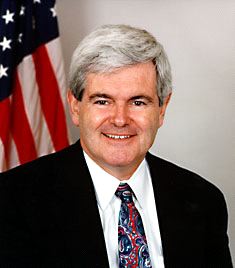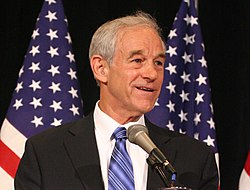This case has vast implications for the powers of Congress, and government in general. Because of this, SCOUS will spend an unprecedented three days on the issue. On the first day the topic will be if SCOUS can even rule at all over the individual mandate yet. There is a very obscure bit of the tax code hanging around since 1867. That little bit of law says that no tax law can be challenged until the tax has been levied and collected. The individual mandate's penalties due to non-compliance do not come in to effect until 2014, therefore the first time any of the penalties would be collected would be in 2015. So, according to the 1867 law, the individual mandate would not be eligible for challenge until 2015.
What is most interesting about this part of the proceedings is that this was never ever brought up on appeal. This is just something that SCOUS wanted to talk about first. You see, SCOUS spends most of its time asking lawyers, "What does this have to do with us??" They are the only court that really works hard on not doing its job. It is also something that the opponents of ObamaCare were not prepared for... neither were the supporters. The court appointed a special attorney to argue for the Government, and the states attorney's Generals will need to come up with the opposition.
That they are even talking about this law suggests that there is quite a bit of support on the court to postpone arguments for several years. This only helps the supporters of ObamaCare, as they would have more time to change the mandate language to be more palatable to SCOUS.
Also, if President Obama is re-elected, there is a good chance that he will be able to nominate one or more Justices to SCOUS, thus changing the leaning of the court from a conservative court to a liberal one.
To be honest, I don't know where the court will end up on this one... I didn't see it coming, and I know next to nothing about the 1867 law. It sounds valid... However, the court, while often seeming like it wants to postpone and not rule on anything, is loathe to not take up cases that it has selected for hearing. I think if the court wanted to take this route it would have simply directed the lower courts to examine this law, and let it be at that. That they actually scheduled three days to go over the ObamaCare case tends to make me believe that they will not punt, but go a head and make a true ruling on the entire case.
The next day of arguments is over the Individual Mandate itself, which will be moot if the court decides that the law can't be challanged... Anyway what everything boils down to is this clause in Article I, Section 8 of the Constitution:
[The Congress shall have Power] To regulate Commerce with foreign Nations, and among the several States, and with the Indian tribes;It gives Congress the power to act as the regulatory body for commerce that happens across state lines. It means that the Federal Government is the one who says how interstate commerce is to proceed. It is something that the Articles of Confederation did not have, and it is a vital part of what makes the United States, united. Before the Constitution, states basically had to make treaties with one another over interstate commerce, and the agreement that Virginia may have had with Maryland, may not have been the same agreement that Maryland had with New York. With the central government powerless to regulate the state's commerce, states literally fought battles between one another to settle disputes. It made things horribly confusing for merchants as well, with one set of rules for one state and another set of rules for another. So, when the Constitution was written, this clause was included to solve all of these problems.
With the election of Franklin Roosevelt in 1929, the usage of the Commerce Clause was greatly expanded to make a Constitutional opening for his New Deal social programs. This didn't go over well with the existing court, so Roosevelt planned to add so many of his own justices to SCOUS that he would force a court to agree with the New Deal's social programs. In the end, he didn't have to. Roosevelt was president so long that he outlasted many of his opponents, and was able to stack the court in his favor. This is one reason for the term limits now imposed on the Office of the President of the United States.
Anyway, back to ObamaCare... The supporters of ObamaCare say that health care is something that we all consume and that it is an industry that spans every state in the union. Therefore Congress has every right, under the commerce clause to require that all people have some sort of health insurance.
The opponents of ObamaCare will argue that the Commerce Clause does not apply in this situation, and that there is no possible way that a person who chooses not to buy Health Insurance is engaging in interstate commerce. They will argue that the Federal Government has never before attempted to regulate non-participation in an act as participation in that act.
The supporters of ObamaCare will say that this is not so, and that Government regulation of NOT engaging in interstate commerce is long established law. They will bring up the curious case of Wickard v. Filburn where a wheat farmer, Roscoe Filburn, was fined because he was growing wheat over his quota. Filburn's argument was that the wheat was for personal use, and was not going to be sold, therefore he was not breaking any quota laws, and, since the wheat was not sold, he was in no way engaging in interstate commerce. Nah nah na boo boo!!!
The court thought otherwise, though and said that even though Filburn was not selling his wheat, he was not BUYING wheat either. Thus by not engaging in interstate commerce, in the purchase of quota controlled wheat, Filburn WAS engaging in interstate commerce. In other words, by not buying wheat off of the controlled market, Filburn was acting to soften the market by growing his own wheat. So, Filburn's self used wheat could, indeed be regulated by the FedGov. Awesome right?

Roscoe Filburn and his wheat.
Then comes the much touted, world famous, broccoli argument. The opposition then argues that if the FedGov can force people to buy health insurance, can they also force us to buy broccoli? Broccoli is good for you and thus its consumption would lower health care costs. So, in the name of lowering interstate health care costs, we must now buy a quota of Broccoli every week, or be subject to fines. What about cars? GM is too big to fail, and is now mostly owned buy the United States Government. The best solution for GM to pull itself out of bankruptcy is to increase sales. It aid this Government owned company Congress says that every American must purchase a GM car. Blamo, problem solved.
Non-sense, says the supporters. The purchase of health insurance affects everyone in that if you do not have health insurance, and you go in to an Emergency Room, Medicare must cover your dead beat ass. Since Medicare is paid for by the American Taxpayer, ipsofacto, the Government has the power to force you to buy something that will keep your dead beat ass from bankrupting Medicare.
I have to admit first, and if you read this blog you already know, that I have NO CLUE on how the Government has any leg to stand on in this case. I don't see how not engaging in commerce, is commerce, because I MIGHT have a need for a government program later on. It doesn't hold water. Not to mention the fact that if we didn't make the very real Constitutional stretch to allow Medicare in the first place we wouldn't be in this goddamned mess in the first place. The simple fact is that this law removes any limits on the government at all. They can force the population to do, and to buy whatever they want it to. It is the end of the Republic, and the beginning of Fascist America (Fascism in an economic sense is where commerce is owned privately but tightly controlled by an all powerful state).
The final day of arguments is to settle the final two questions posed before the court. Whether the rest of the law can take effect even if the health insurance mandate is unconstitutional and whether the law goes too far in coercing states to expand the federal-state Medicaid program for low-income people by threatening to cut off federal aid to states that don't comply.
Again we see the cascading mootness (I don't think that is a word...) of these decisions. If the court decides that they can hear the arguments about the individual mandate, and they decide that the mandate is unconstitutional, then the first question is valid, and the second is not. However, if they decide they that they can hear the arguments about the individual mandate, and they decide that the mandate is constitutional, then the second question is valid, and the first is not. BUT, if they decide that they can't hear arguments on the individual mandate, then everybody goes home and waits until 2017 or so when these questions pop up once again.
Anyway, back to the point. I don't see how the states that don't comply can't be coerced to comply with the federal aid thing. The FedGov and the states have been playing this game forever and it never seems to be a constitutional issue. It would be very interesting, though if the court said that the FedGov can't do such a thing. I wounder if we would see the drinking age drop back to 18 in the southern states... Now that I am over 18, I really... don't think I could care less. But there are a number of other issues that States could rebel on with out the fear of the FedGov taking money away. I like that... I like that a lot!!
Can the rest of the law stand if the individual mandate is taken away? I think that the court will say that it could. I don't see any reason why not, the court has a history of striking down individual pecies of law, while keeping other pieces intact, so I don't see why that would be a problem here. The problem would be to the law itself. With no way to ensure that the populace is insured, the law becomes a toothless tiger, and not worth the paper it is printed on. This might be the best situation for everyone, except we Libertarians who have been screaming since 1929..., as this will allow the more popular parts of the law, no denial of policy based on pre-existing conditions, and no lifetime limit on policies, to survive.
This is a big deal and I really hope that the court will strike down the individual mandate. I think that it will come down to a 5-4 decision to strike it down, but you never know about Justice Kennedy. He is a big government conservative, and not a strict Constitutionalist like the other Justices appointed by Republicans. There is no doubt however in the liberal side of SCOUS. They will undoubtedly vote to uphold the mandate.





